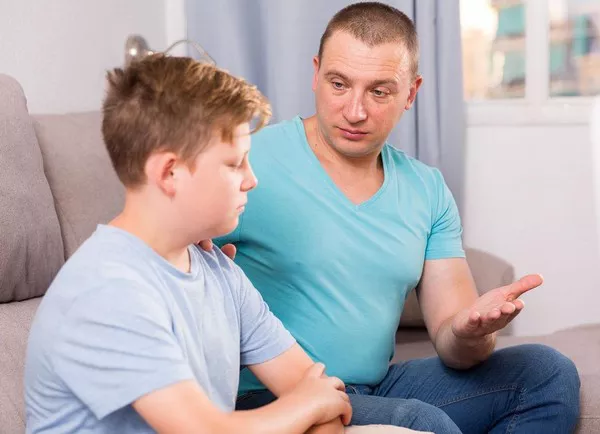Friendship breakups can be just as painful, if not more so, than romantic breakups. They often involve deep emotional connections, shared histories, and a significant amount of time invested in the relationship. Understanding the duration and impact of friendship breakups can provide insight into the healing process and help individuals navigate their emotional responses. This article explores the various factors that influence the length of friendship breakups, the psychological implications, and ways to cope effectively.
Understanding Friendship Breakups
Friendship breakups can occur for numerous reasons, including growing apart, conflicts, betrayal, or life changes such as relocation or major life transitions. The emotional toll of losing a friend can be profound, leading to feelings of grief, loneliness, and sometimes even shame or guilt. Unlike romantic relationships, where there are often clear signals of ending, friendships may fade quietly or dissolve after a single confrontation, making the aftermath difficult to process.
Factors Influencing the Duration of Friendship Breakups
Several factors can influence how long the emotional impact of a friendship breakup lasts. These include:
Nature of the Breakup
Mutual vs. Unilateral: If both parties agree to end the friendship, the process may be smoother and shorter. However, a unilateral decision often leads to lingering feelings of rejection or resentment.
Conflict vs. Drift: Breakups due to conflict often involve heightened emotions and can take longer to resolve. In contrast, friendships that fade over time may allow for more natural closure.
Emotional Investment
The more time and emotional energy invested in the friendship, the longer the recovery process may take. Friends who have shared significant life events or deep emotional support systems may find it harder to let go.
Personal Coping Mechanisms
Each individual has different ways of coping with emotional pain. Those who have strong emotional regulation skills or supportive social networks may process the breakup more quickly than those who struggle with emotional expression or have fewer support systems.
Circumstantial Factors
Situations such as shared social circles or professional environments can prolong the emotional fallout. Being in the same space as an ex-friend can evoke memories and feelings that hinder healing.
Personal History
Individuals with a history of difficult breakups or unresolved emotional issues may find it more challenging to cope with friendship breakups, potentially extending the duration of their pain.
The Psychological Impact of Friendship Breakups
Friendship breakups can have significant psychological effects that vary in intensity and duration. The grieving process for a lost friendship can manifest through several emotional stages:
Denial: Initially, individuals may struggle to accept that the friendship has ended. They might deny the reality of the situation or cling to the hope of reconciliation.
Anger: Feelings of anger can arise, directed towards the ex-friend, oneself, or the circumstances surrounding the breakup. This anger can delay healing if not addressed.
Bargaining: Some individuals may try to negotiate the return of the friendship, reminiscing about good times and wishing they could change past events.
Depression: As the reality sets in, feelings of sadness and loss may dominate. This phase can be prolonged if individuals feel isolated or unsupported.
Acceptance: Eventually, many individuals reach a point of acceptance, where they can acknowledge the breakup, learn from it, and move forward. This stage signifies a readiness to explore new friendships or deepen existing ones.
See Also: Can Friends Kiss Each Other?
How Long Does the Grieving Process Last?
The duration of the grieving process for friendship breakups can vary widely, influenced by the aforementioned factors. Some studies suggest that the emotional impact can last from a few weeks to several months. Here’s a closer look:
Short-Term Breakups (Weeks to a Few Months): Breakups that result from minor conflicts or misunderstandings often resolve relatively quickly. In these cases, individuals may feel hurt but can work through their emotions with time, support from others, and perhaps a resolution of the conflict.
Medium-Term Breakups (Three to Six Months): Friendships that ended due to more significant disagreements or betrayals may require a longer healing period. This timeframe allows for the processing of emotions, self-reflection, and potential growth from the experience.
Long-Term Breakups (Six Months to a Year or More): In cases where the friendship was deeply rooted, or the breakup involved considerable emotional trauma, the healing process can extend beyond a year. Individuals may struggle with feelings of loss, particularly if the friendship had a profound impact on their identity or social life.
Coping Strategies for Managing Friendship Breakups
While the pain of a friendship breakup can feel overwhelming, there are several effective coping strategies that can facilitate healing and help individuals regain emotional stability:
Acknowledge Your Feelings
It’s essential to allow yourself to feel the full range of emotions that arise during a breakup. Suppressing feelings can lead to prolonged pain and hinder the healing process. Journaling, talking to a trusted friend, or seeking professional support can help articulate these feelings.
Establish Boundaries
If the breakup was particularly painful, it may be necessary to establish physical and emotional boundaries with the ex-friend. Limiting contact can provide the space needed to heal and prevent additional emotional turmoil.
Seek Support
Relying on other friends or family members for emotional support can be crucial during this time. Talking about the breakup and sharing your feelings can alleviate loneliness and help process emotions.
Engage in Self-Care
Prioritizing self-care is vital for emotional recovery. Activities that promote well-being, such as exercise, hobbies, mindfulness, and relaxation techniques, can help improve mood and resilience.
Reflect on the Friendship
Taking time to reflect on what you learned from the friendship and the breakup can provide valuable insights. Understanding the dynamics of the relationship can aid in personal growth and help inform future friendships.
Explore New Connections
While it may feel daunting, putting yourself out there to form new friendships can be a healthy step forward. Engaging in social activities, joining clubs, or participating in community events can provide opportunities to meet new people.
Consider Professional Help
If feelings of grief, depression, or anxiety persist, seeking professional help can provide additional support and coping strategies. Therapists can offer guidance tailored to individual needs, helping to process complex emotions.
Conclusion
Friendship breakups are complex and can vary widely in duration and emotional impact. Understanding the factors that influence how long these breakups last can provide clarity and help individuals navigate their feelings. By acknowledging emotions, seeking support, and employing effective coping strategies, individuals can foster healing and personal growth after a friendship ends. While the journey may be challenging, it often leads to a deeper understanding of oneself and the ability to form more fulfilling connections in the future.
Related topics:





























